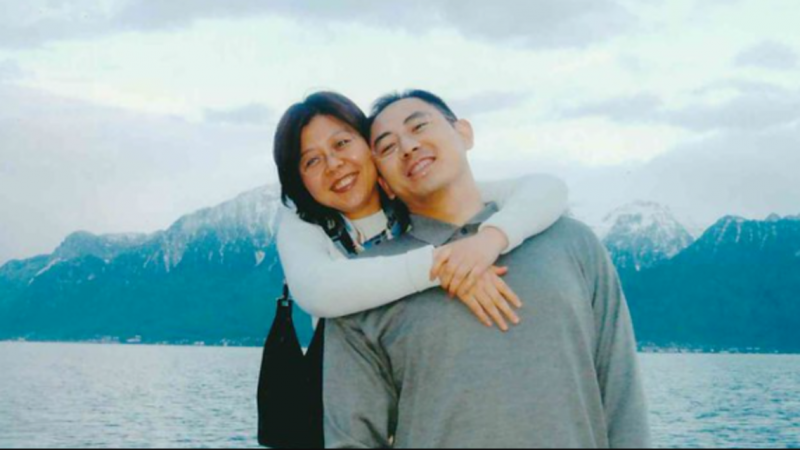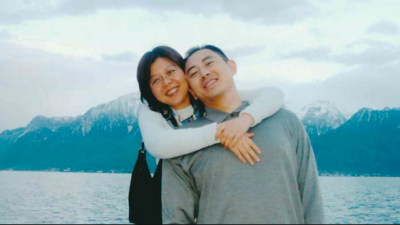China has become a trap for billionaires; despite the arduous ascent that most billionaires experience, the fall is much easier. Most endings come with prison sentences, executions, or enforced disappearances. Wei Hong Dawan, known as Whitney Dawan, stands as the most prominent example and symbol for every dreamer in China aspiring for wealth. After growing up in poverty, she leaped onto a rocket to be dubbed the richest Chinese woman, with wealth exceeding several billion dollars. Then, on September 5, 2017, at the age of fifty, she simply vanished from the streets of Beijing.
Her ex-husband, Desmond Shum, recounts in his new book "Red Roulette" (Scribner), "She was last seen the day before at her sprawling office in Genesis Beijing, a $2.5 billion development project that the couple was involved in building." Whitney's disappearance reveals the danger of doing business in China, where success relies less on your acumen and more on your connections to the red aristocracy. And when you think you have the right connections, it turns out you're completely mistaken.
For years, Whitney seemed to be a star that would never stop rising. Her mother fled while she was pregnant, managing to marry later, and the family lived in a one-room apartment in a small town in Shandong Province, far from the corridors of power in Beijing. Whitney attended university on her second attempt after failing the entrance exam the first time and graduated at the top of her class from Nanjing University of Technology, soon becoming the executive assistant to the university president.
Shum wrote: "Working with a Chinese university president provided Whitney with an invaluable education in dealing with Chinese officials, a skill she honed to perfection." "She learned to adjust her demeanor and tone depending on her interlocutor. Her university was closely linked to the People's Liberation Army, so she also received intensive training in dealing with military officers," as reported by the New York Post.
In short, Whitney learned that to succeed at anything in China, you must have good relationships with others, or what is referred to in Chinese as "Guanxi." In 1996, Whitney founded a real estate development company called Great Ocean. Thanks to her "Guanxi," or her adeptness at dealing with officials, in a country where the government owns all land, building anything requires navigating a cumbersome and corrupt bureaucracy. But Whitney could always find a party official to cut through the red tape.
After many successful real estate projects in Tianjin, Whitney moved to the capital, Beijing, in 2002 and began training senior officials in the city. There, she met her ex-husband Desmond Shum, a man born in Shanghai, raised in Hong Kong, educated in America, with a background in finance.
Shum wrote that he was the perfect match for 36-year-old Whitney, who felt it was time to marry. Their union became as much a business deal as it was a marriage, with Whitney working as a key partner, identifying opportunities and leveraging officials, while her husband turned her visions into actual steel, glass, and concrete buildings. Whitney also established high-level connections with individuals at the top of China’s power hierarchy.
Before long, Whitney connected with the family of the upcoming Premier, Wen Jiabao, who was set to take office in 2003. Shum wrote: "Ministers, deputy ministers, heads of state-owned enterprises, and business leaders were invited to our table. We explored the landscape together for opportunities, scrutinizing partners and potential candidates for vacant senior government positions that [Wen] could take."
The presence of the second most powerful man in China as her patron, or "houtai" in Chinese, helped Whitney secure a number of lucrative real estate deals. However, assistance from Wen was not free: he demanded a 30% stake in the projects he supported. Shum wrote: "We committed to the arrangements. Other families of senior party members extracted a similar percentage in exchange for their political influence."
Whitney's first billion-dollar deal came when she was able to buy into a Chinese startup called Ping An Insurance Company with the Premier as her silent partner. When the company went public a few years later, Whitney sold her stake worth $400 million, along with another $200 million for the Wen family. Her second massive deal involved assisting an ambitious Beijing official named Sun Zhengkai in building the largest air freight logistics facility in China, the Beijing Airport cargo terminal, which made her a billionaire.
However, Whitney’s days of success were numbered: she joined a faction within the party that was losing favor. The first blow came in 2012 when foreign media reported that the Wen family had somehow amassed a fortune exceeding $2.7 billion during his official tenure. It was revealed that their greatest source of wealth came from Ping An Insurance Company, which had grown over the years to become China's largest financial services company. Even Wen Jiabao's mother, a retired teacher with no other source of income aside from her government pension, held shares worth $120 million.
Suddenly, Whitney's role in helping the Wens amass vast wealth was exposed. Nothing angers the ordinary Chinese more than discovering that party officials and their families have become extraordinarily rich from their political influence. However, the Wen family was not the exception but the norm.
In the same year, a Bloomberg report revealed that the family of the upcoming party leader, Xi Jinping, had somehow amassed an estimated wealth of about $1.5 billion. In response, Xi launched a harsh campaign to "combat corruption" to bolster his image. He established a Communist Party branch in every enterprise employing over 50 people and appointed party representatives to the boards of all major non-state-owned companies in the country. Xi also made it clear that billionaires were living on borrowed time and predicted in an early speech the "ultimate demise of capitalism and the final victory of socialism."
Since then, hundreds of Chinese billionaires and executives have vanished. Some reappeared weeks or months later in recorded propaganda videos, robotically expressing their unwavering allegiance to the party and President Xi, while others serve long prison sentences.
Punishment for the wealthy
Last September, Ren Zhiqiang, a real estate mogul who criticized Xi’s handling of the pandemic, was sentenced to 18 years in prison on corruption charges. Last month, Sun Dao, a Chinese agricultural magnate, received a similar penalty for "creating troubles." Even Jack Ma, who was the richest man in China, vanished late last year after publicly criticizing the Chinese banking system. He is reported to now be undergoing "reeducation" at the hands of party officials in a secret location.
Shum wrote that in 2012, Xi forced the red aristocracy, including the Wen family, to "quietly donate" all their assets to the state in exchange for assurances that they would not be prosecuted. The couple separated after Shum considered the political climate in China hostile to businessmen and decided to move his business outside China, whereas Whitney had another opinion.
Sun Zhengkai, who worked on the Beijing airport project with Whitney, was a rising star in the Chinese Communist Party. After being selected to run the city of Chongqing in 2012, he was being groomed for one of the highest positions expected to be available in 2022-2023, either as General Secretary or even Premier of China when Xi Jinping was set to step down. Whitney was one of the campaign managers for Sun.
There was only one problem with their plan: Xi, the man they were planning to replace as the new leader of China, decided he did not want to leave his position in 2022-2023—or ever.
The end of the dream
Beginning in February 2017, Sun's professional career began to decline. In July, he was dismissed from Chongqing and placed under investigation for violating party discipline, making him the first sitting Politburo member to face corruption allegations since Xi took power. Then, in September 2017, Whitney vanished. Since her maid was abducted at the same time, it is suspected she was home when the secret police arrived.
In the same month Whitney disappeared, Sun was expelled from the party. By May of the following year, he was sentenced to life in prison on corruption charges. Chinese media reported that he received more than $26 million in bribes directly or through specified third parties, and that the "designated parties" included businesswomen, one of whom was Whitney.
Four years later, Whitney's whereabouts remain unknown, while her ex-husband lives in Britain with their now 13-year-old son.




